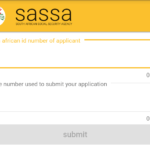SRD Grant Might Be Made Permanent

The Social Relief of Distress (SRD) grant was implemented in 2020 to assist unemployed individuals with the impacts of the Covid-19 pandemic. Currently, more than 10 million people are benefiting from the grant.
Due to the country’s growing unemployment rate and cost of living crisis, many have urged the government to implement a more permanent solution to assist those in need.
In efforts to find a permanent solution, The Department of Social Development (DSD) appointed a panel of experts who set out to determine whether making the Social Relief of Distress (SRD) grant permanent could both be affordable and have benefit to the economy.
The panel presented their second report last Tuesday (13 December) which looked at the various economic, fiscal, and social implications of making the grant permanent, up to 2045.
Results show that, depending upon how it is financed, the SRD Grant can be implemented permanently if it’s done in a manner that is fiscally and economically sustainable while simultaneously reducing poverty for 13.1 million beneficiaries.
The study also suggests that the SRD Grant also has significant redistributive opportunities, diminished only by the choice of financing option and inclusive growth options appear strong when the SRD Grant is combined with a wage subsidy that targets the lowest occupational groups.
However, many have questioned how the department plans on financing the grant for it to be sustainable and without causing further damage to the economy.
Alex van den Heever, the chair of panel investigating the feasibility of the basic income support (BIS) said that it is possible for South Africa to implement BIS grant without sacrificing any economic growth.
He explained that the grant could be introduced “In a manner that is economically and fiscally sustainable while at the same time having a material impact on poverty and inequality.”
The report suggested four possible funding models for the grant, including: increasing Personal Income Tax, Value Added Tax, a wage subsidy for low earning individuals and hybrid model which incorporates a wage subsidy and personal income tax.
Van de Heever acknowledged that the introduction of new taxes could give way to behavioural impacts on the tax system that are not easy to model.
Therefore, In order to minimise any behavioural impacts on the tax system and, it was proposed that a phased approach be adopted for the progressive enhancement of the SRD benefit over time.
Following the study, the department plans to conduct several processes over the next three months, including presenting the policy document to the Cabinet, hearing public comments, and amending the regulations before it is ready for implementation.





